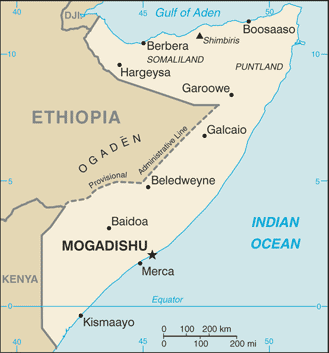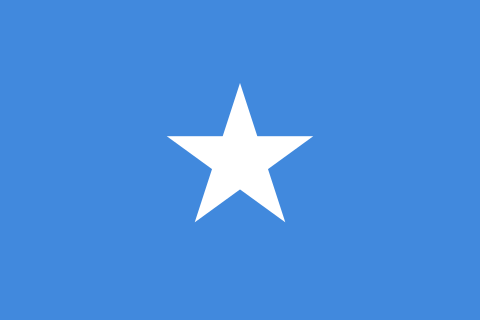Its terrain consists mainly of plateaus, plains, and highlands. Hot conditions prevail year-round, with periodic monsoon winds and irregular rainfall. By mid-2012, the insurgents had lost most of the territory they had seized, and a search for more permanent democratic institutions began. Despite this, insurgents still control much of central and southern Somalia, and wield influence in government-controlled areas, with the town of Jilib acting as the insurgents' de facto capital

|
|
|
Economy:
It is classified by the UN as a developing country. The private sector has experienced growth, particularly in the service sector. Unlike the pre-civil war period, when most services and the industrial sector were government-run, there has been substantial, albeit unmeasured, private investment in commercial activities. The investment has been largely financed by the Somali diaspora, and includes trade and marketing, money transfer services, transportation, communications
|
|

|
|
|





